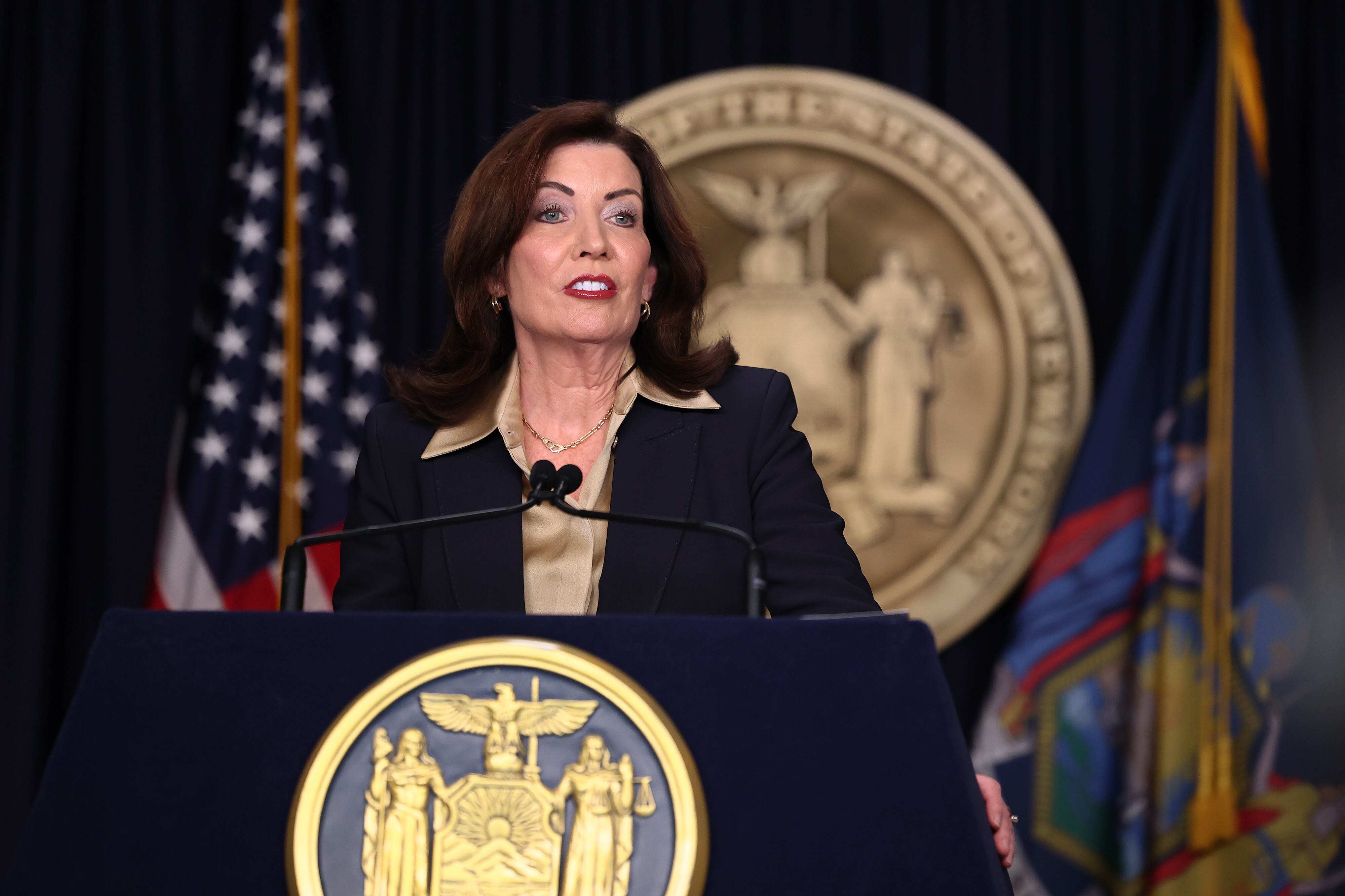Sign up for Chalkbeat New York’s free daily newsletter to get essential news about NYC’s public schools delivered to your inbox.
Several education issues with big implications for New York City families remain in limbo as Albany officials have blown past the April 1 state budget deadline.
At stake are hundreds of millions of dollars for New York City public schools, the future of child care subsidies for thousands of low-income families, and a proposal from Gov. Kathy Hochul to ban cellphones in classrooms.
“None of them are put to bed yet,” state Sen. John Liu, who helms the senate’s NYC education committee, told Chalkbeat.
Officials have repeatedly extended current spending levels since the April 1 deadline, with the latest extension set to expire Tuesday. Legislative leaders are still hammering out agreements with Hochul over a range of contentious policies that have been lumped into the budget process, including rollbacks to discovery reform and restrictions on wearing face masks in public.
As negotiations drag on, here are three issues to watch that affect New York City public schools and families.
A ‘bell-to-bell’ cellphone ban
Hochul’s most prominent education proposal is a ban on cellphones from “bell to bell” — requiring every school to collect phones or use lockable pouches to prevent students from accessing their phones during the school day.
The Hochul administration is optimistic about securing the ban, though the specifics remain uncertain. The state Senate’s proposal includes an exemption during “non-instructional time” and calls for a prohibition on suspending students who violate the policy. Some parents and the New York Civil Liberties Union have also pushed back against a full phone ban.
“There seems to be broad agreement on the cellphone ban,” Liu said. “But the devil — meaning the details — are more elusive.”
Roughly half of New York City public schools already have cellphone restrictions in place. Still, schools Chancellor Melissa Aviles-Ramos testified at a budget hearing earlier this year that the state should set aside more funding to help schools pay for devices to store phones. The governor budgeted $13.5 million for districts across the state.
The future of the state’s school funding formula
Nearly everyone agrees the state’s two-decade-old school funding formula, known as Foundation Aid, needs an overhaul. There is less consensus about how to accomplish that — and hundreds of millions of dollars for New York City public schools hang in the balance.
Under Hochul’s proposal, New York City public schools would receive about $350 million less than under the current formula, which sent about $9.5 billion to city schools this year. The governor’s proposal replaces a 2000 Census poverty weight with a more recent Census measure, but it does not account for differences in local costs of living.
The Senate and Assembly both proposed versions that incorporate regional differences in cost of living. The Senate proposal would restore about $288 million relative to the governor’s changes and the Assembly’s version calls for including about $200 million, according to a report from the Alliance for Quality Education, an advocacy group that pushes for more school funding.
A coalition of more than 100 organizations that represent parents and advocates have called for other changes that would drive more funding to high-need districts, including additional weights for students living in temporary housing and children with disabilities.
Several advocates argue that solid funding from the state is even more essential given rising costs from tariffs and threats from the federal government to withhold funding from districts that run afoul of the Trump administration’s priorities.
Child care vouchers for needy families
Thousands of low-income New York City families could lose child care vouchers without a nearly $1 billion funding increase.
The Child Care Assistance Program supports about 80,000 families and has grown substantially in recent years due to a mix of pandemic federal relief funding (which is drying up), changes that expanded eligibility for the program, and a boost in the voucher’s value to about $300 a week on average.
Without $823 million to $907 million in additional funding over the next year and a half, up to 7,000 families a month will begin to lose the subsidies, one analysis found, a major blow for families grappling with hefty child care costs.
Hochul’s budget proposal includes no additional funding for the program, though a spokesperson for the governor noted that state funding for child care subsidies have grown significantly in recent years while the city’s share has barely budged. The Senate’s plan adds about $50 million to the program while the Assembly proposed $213 million, New York Focus reported.
Alex Zimmerman is a reporter for Chalkbeat New York, covering NYC public schools. Contact Alex at azimmerman@chalkbeat.org.





